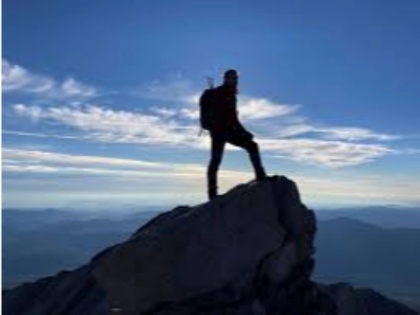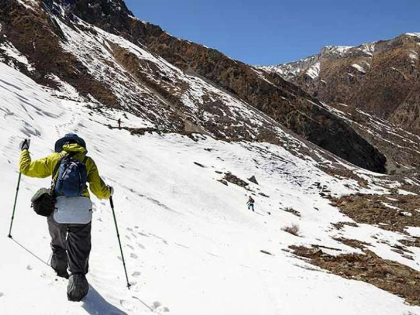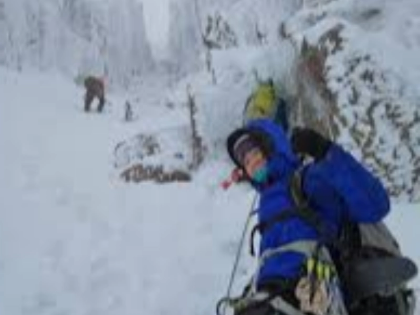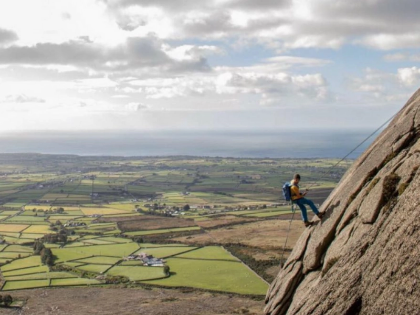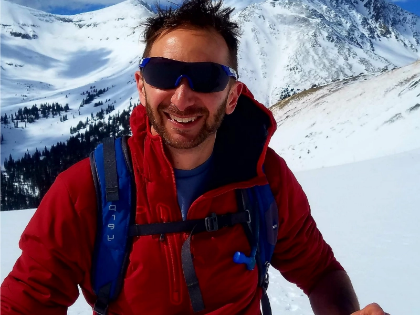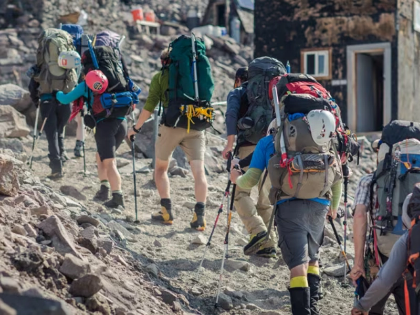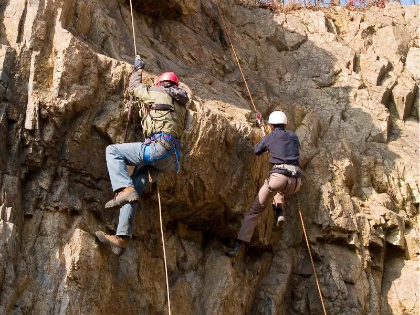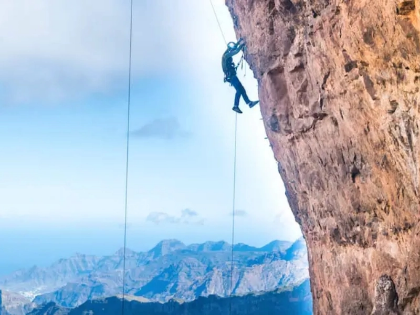Skills for mountaineering survival
It's essential for mountaineers to have survival skills. Among these are the skills necessary to construct a shelter and filter water. Using a compass and being able to communicate with others via signaling mirrors or Morse code are two more essential abilities. In a survival emergency, these abilities may be the difference between life and death.
Communication
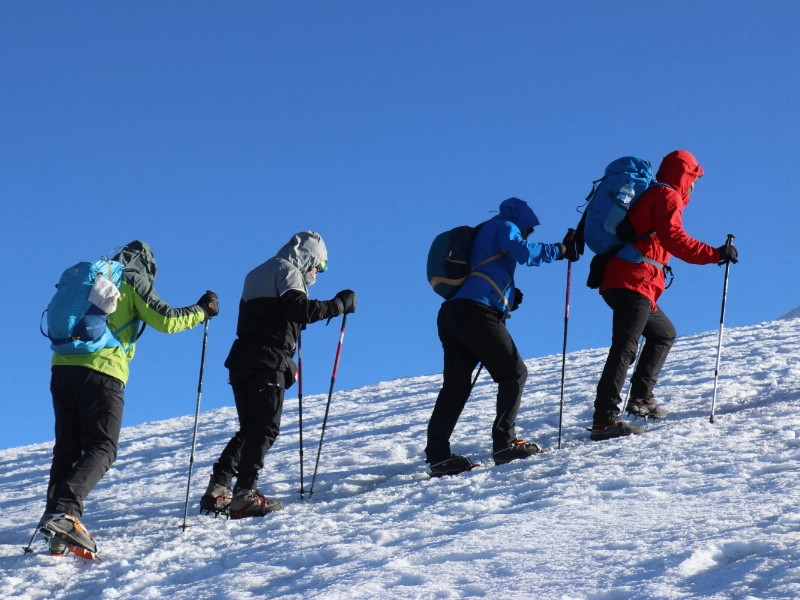
Navigation
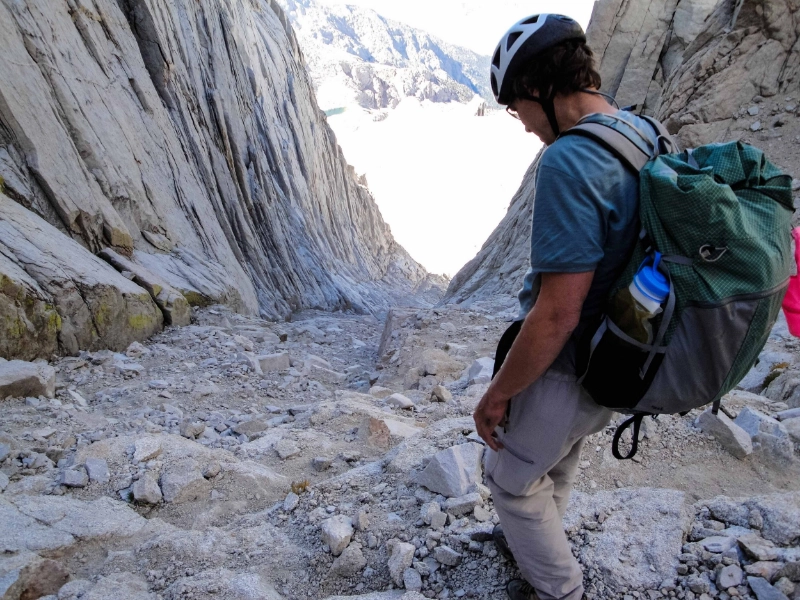 Having good navigational abilities is crucial, whether you're mountaineering or just taking a leisurely stroll in the mountains. GPS-enabled smartphones and standalone devices are common accessories for a variety of outdoor activities. But relying too much on these gadgets might be dangerous because mountaineering requires the ability to read a topographic map and utilize a compass.
While learning the fundamentals of a map and compass is not too difficult, being an expert navigator in the mountains requires experience and meticulous attention to detail. Beginners frequently make the error of underestimating distances when mountain biking, estimating how long a particular route will take based on past experiences.
A climber also needs to be able to navigate in bad weather, when there may be very little to no visibility. In a risky circumstance, being able to recognize this and change your plans will help you gain time.
Having good navigational abilities is crucial, whether you're mountaineering or just taking a leisurely stroll in the mountains. GPS-enabled smartphones and standalone devices are common accessories for a variety of outdoor activities. But relying too much on these gadgets might be dangerous because mountaineering requires the ability to read a topographic map and utilize a compass.
While learning the fundamentals of a map and compass is not too difficult, being an expert navigator in the mountains requires experience and meticulous attention to detail. Beginners frequently make the error of underestimating distances when mountain biking, estimating how long a particular route will take based on past experiences.
A climber also needs to be able to navigate in bad weather, when there may be very little to no visibility. In a risky circumstance, being able to recognize this and change your plans will help you gain time.
Self-reliance
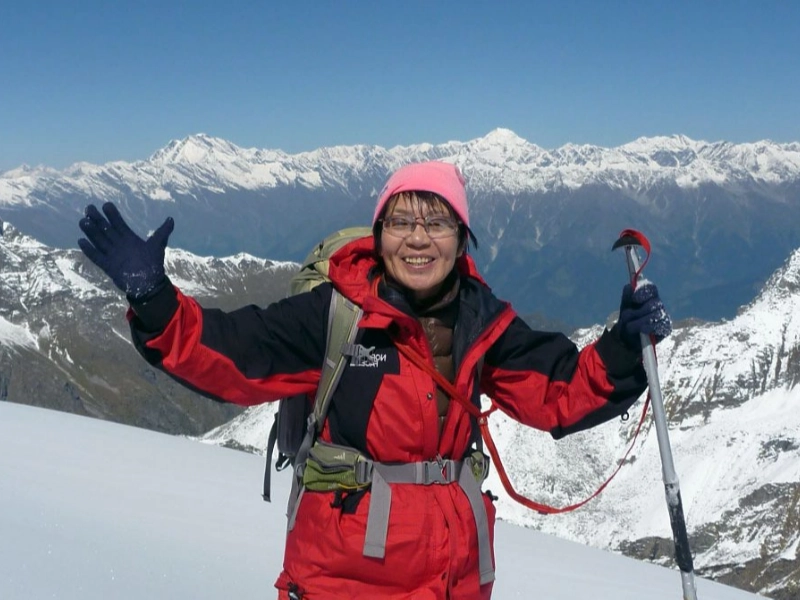 Climbers frequently find themselves in remote areas by themselves, having to negotiate treacherous terrain. The ability to make wise decisions on your own without consulting anybody else is crucial. Although it can be difficult, this part of climbing teaches you self-reliance skills that will be useful on any expedition.
For example, if a climber finds himself stuck on an unclimbable rock, they may need to know how to rig a sequence of friction knots or prusik up a rope. The ability to construct a makeshift shelter, such as a snow cave or lean-to tent, when necessary is also beneficial.
These essential outdoor survival skills are not found on page 236 of a worn-out guidebook or in a fancy first-aid package. To become a competent, safe mountaineer, you'll need to practice and refine these skills on the mountains. You will also gain a great deal of self-awareness. And that's really, really awesome.
Climbers frequently find themselves in remote areas by themselves, having to negotiate treacherous terrain. The ability to make wise decisions on your own without consulting anybody else is crucial. Although it can be difficult, this part of climbing teaches you self-reliance skills that will be useful on any expedition.
For example, if a climber finds himself stuck on an unclimbable rock, they may need to know how to rig a sequence of friction knots or prusik up a rope. The ability to construct a makeshift shelter, such as a snow cave or lean-to tent, when necessary is also beneficial.
These essential outdoor survival skills are not found on page 236 of a worn-out guidebook or in a fancy first-aid package. To become a competent, safe mountaineer, you'll need to practice and refine these skills on the mountains. You will also gain a great deal of self-awareness. And that's really, really awesome.
Leadership
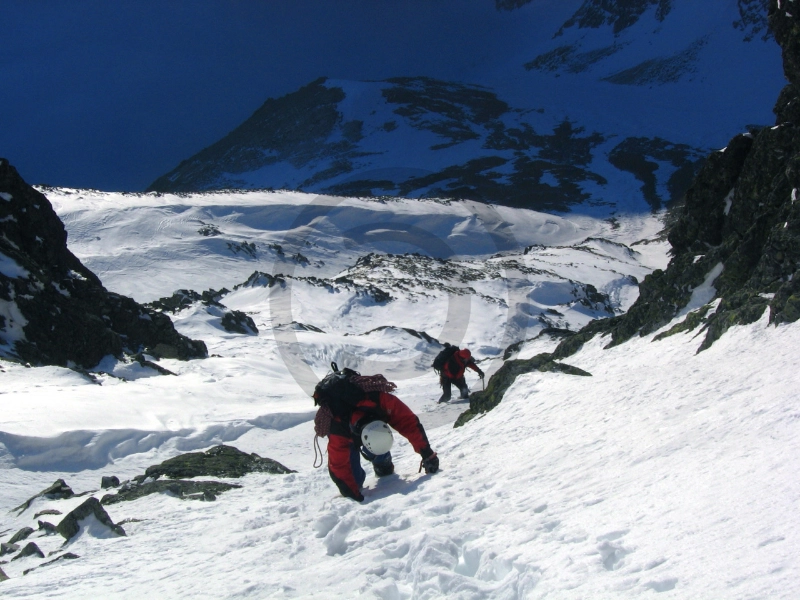 Effective leadership is essential for mountaineering, whether you're leading an adventure trip or just going on a hike with buddies. Leaders need to be able to inspire and encourage other climbers in addition to exhibiting a thorough understanding of outdoor safety and climbing. This is particularly crucial when anything starts to endanger someone's life.
Being an effective leader starts with having clear communication skills. This includes communicating information on the mountain via unique orders and signals. This is useful because you might not always be able to see or hear your climbing buddy. By establishing these signals in advance, you can stay in contact with your companions and prevent mishaps.
While many of these abilities can be learned in the classroom, outdoor practice is equally important. To increase your odds of surviving a backcountry disaster and to obtain real-world experience, think about enrolling in a wilderness survival course. A number of mountaineering and outdoor businesses, like Undiscovered Mountains, provide these courses.
Effective leadership is essential for mountaineering, whether you're leading an adventure trip or just going on a hike with buddies. Leaders need to be able to inspire and encourage other climbers in addition to exhibiting a thorough understanding of outdoor safety and climbing. This is particularly crucial when anything starts to endanger someone's life.
Being an effective leader starts with having clear communication skills. This includes communicating information on the mountain via unique orders and signals. This is useful because you might not always be able to see or hear your climbing buddy. By establishing these signals in advance, you can stay in contact with your companions and prevent mishaps.
While many of these abilities can be learned in the classroom, outdoor practice is equally important. To increase your odds of surviving a backcountry disaster and to obtain real-world experience, think about enrolling in a wilderness survival course. A number of mountaineering and outdoor businesses, like Undiscovered Mountains, provide these courses.
